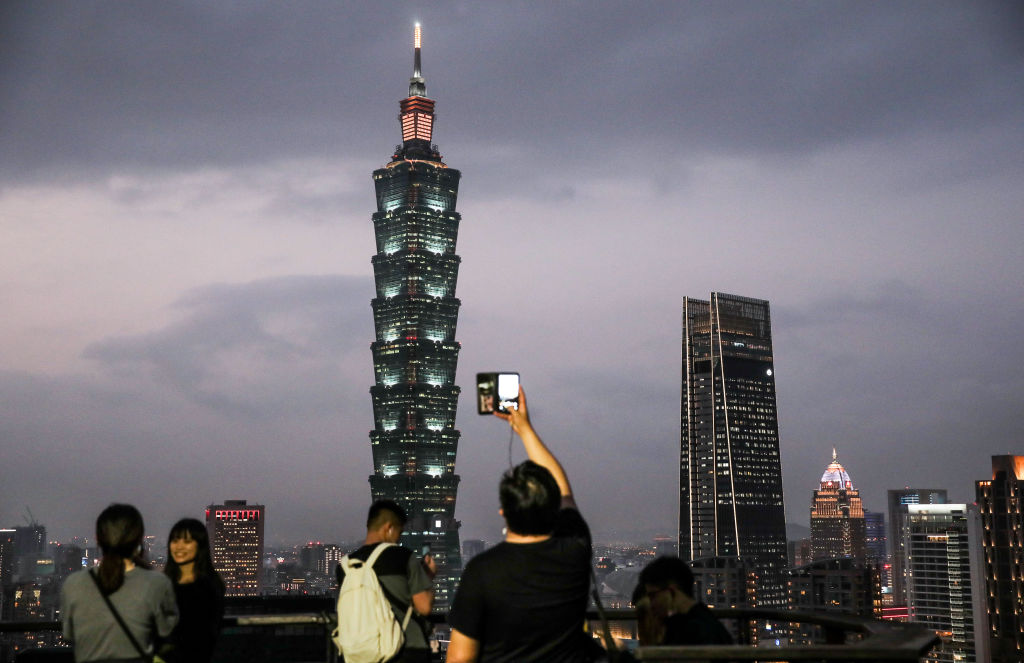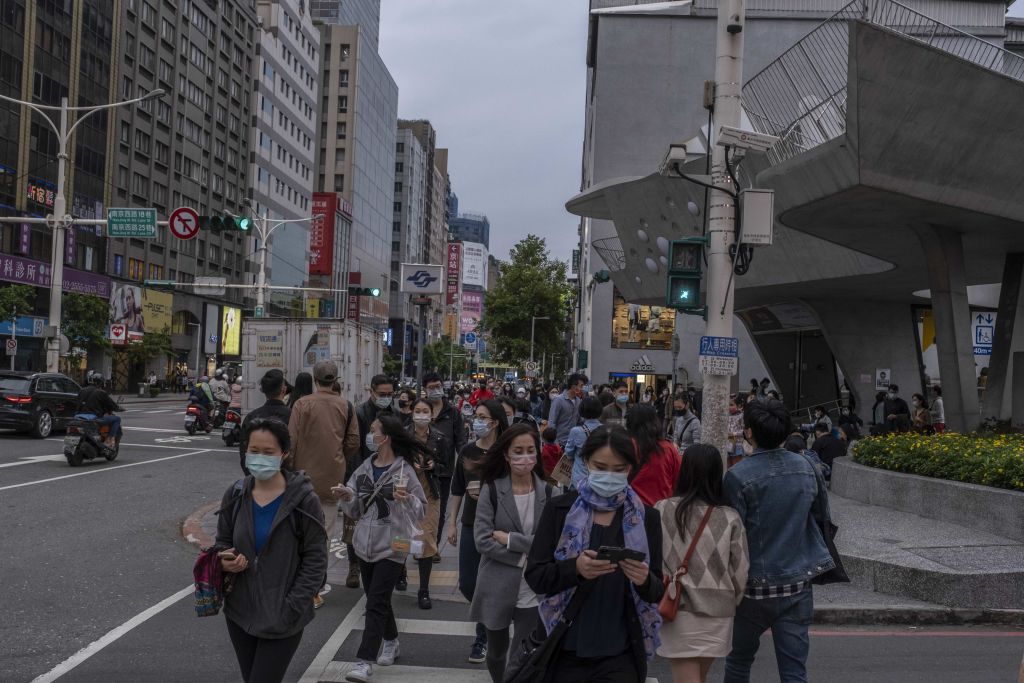
Taipei is easing COVID-19 curbs even as its daily cases are rising, in a strategy radically different from Beijing’s zero-tolerance policy that has shut down many Chinese cities and sent the economy into a tailspin.
On May 5, Taiwan recorded more than 30,000 new COVID-19 infections—crossing that daily threshold for the first time since the pandemic began. The current wave of infections looks to get worse for the island of 23 million, which has so far registered nearly 232,400 cases—some 215,000 since January—and 886 fatalities.
Daily caseloads are expected to rise even further because of the Omicron variant. Health minister Chen Shih-chung said earlier that Taiwan was on track to record up to 100,000 new infections daily, much more than the initial projection of 45,000.
Yet, in the face of this spike, the government has signaled a shift in the pandemic strategy it has been following for two years, away from virus suppression characterized by draconian travel restrictions, mask-wearing mandates, and fastidious contact tracing. A month into the launch of a “new Taiwanese model” of COVID-19 containment, asymptomatic and mild cases are being isolated at home, save for infected children. Close contacts need only be quarantined for three days instead of the earlier 10. Quarantine for arrivals will be cut down from 10 to just seven days.
Read More: How Hong Kong Became China’s Biggest COVID Problem
Premier Su Tseng-chang said this new approach isn’t exactly living with COVID-19, as the virus “would not be allowed to spread unchecked.” But prevention of the virus from spreading is to be balanced with reopening the economy and allowing people to live normally, he emphasized. There would be no stringent lockdowns, Su told reporters on May 1. Health officials are to focus on minimizing severe cases and maintaining “effective control” of mild or asymptomatic ones.
On the other side of the Taiwanese Strait, the zero-COVID policy has seen drastic restrictions on normal life. Entire cities in mainland China have been locked down for weeks. Ports and factories have had their operations suspended. Health apps on mobile phones govern access to transport and public facilities. Though curbs are now being loosened in Hong Kong, harsh travel restrictions over the past two years have temporarily reduced the proud aviation hub and freewheeling financial center to a shadow of its former self.
Experts say Taiwan must find its own approach given the highly transmissible nature of the Omicron variant. “Any containment protocol has to be dynamically revised according to the situation of the epidemic or other characteristics of this virus,” says Chen Chien-jen, who was Taiwan’s vice-president from 2016 to 2020 and is an epidemiologist by training.

Why Taiwan put off moving away from zero-COVID
Taiwan has successfully fended off COVID-19 outbreaks in the past. The island banned flights from across the strait in January 2020, immediately after the virus was detected in the central Chinese city of Wuhan. Swift tracing of close contacts, mass testing, and a centralized mask distribution system helped Taiwan avoid a lockdown, save for some soft curbs a year ago to control an outbreak of the Alpha variant.
Last summer, Taiwan’s COVID-19 response was again put to the test in the face of hundreds of new infections. At the time, the island was struggling to source COVID-19 vaccines and only 3% of its eligible population was vaccinated. New arrivals were required to undergo a 14-day quarantine, and strict contact-tracing policies were imposed on restaurants, stores and other businesses. Taiwan’s COVID-19 cases ballooned to around 11,000 by June 2021 and more than 800 people died during the wave.
Taiwan also began rolling out its locally developed vaccines around the same time. Chen tells TIME that a high vaccination rate, and the availability of rapid testing and antiviral therapies, had to be in place before Taiwan could move away from its de facto zero-COVID policy. The island has now vaccinated 79% of its population, secured some 40 million test kits, and will have obtained 700,000 courses of Pfizer’s COVID-19 drug, Paxlovid, by June. Around 180,000 courses have already been distributed to hospitals and pharmacies.
Read More: Global Shortages Loom as China Lockdowns Continue
There has been some vaccine resistance among Taiwan’s elderly. “There will still be groups who feel that since they had almost no chance of getting the virus when Taiwan had no cases, [they don’t] need to get the vaccine now”, says Wayne Soon, a history professor at Vassar College in New York, who studies medical ideas and practices in East Asia. But COVID-19 immunization among those aged 75 and above has now reached 72.5%, with nearly 60% in the same age group having received a booster.
In Hong Kong, by comparison, only around 25% of those aged 80 and above were vaccinated by January, just before a massive surge in infections. This led to many severe cases, overwhelming the health care system. Roughly 9,300 people have died of COVID in the territory, with 98% of those fatalities occurring in the latest, Omicron-driven outbreak. Over 95% of those who died were aged 60 and above.
Hong Kong, too, appears to be walking back its previous zero-COVID protocols, with curbs easing on businesses and travel. Huang Yanzhong, a global health policy expert at the Council on Foreign Relations tells TIME that Hong Kong can likewise expect numbers to surge as regulations are loosened, but cases should be asymptomatic or mild—as are 99% of the cases in Taiwan’s current wave of infection.
“You cannot expect to move away from zero-COVID unless they experience this stage, this feature, this spike in cases, including the severe cases and also the mortality rate,” Huang says. “But that can be managed. That transition can be achieved [at] a manageable level.”
More Must-Reads from TIME
- Cybersecurity Experts Are Sounding the Alarm on DOGE
- Meet the 2025 Women of the Year
- The Harsh Truth About Disability Inclusion
- Why Do More Young Adults Have Cancer?
- Colman Domingo Leads With Radical Love
- How to Get Better at Doing Things Alone
- Michelle Zauner Stares Down the Darkness
Contact us at letters@time.com